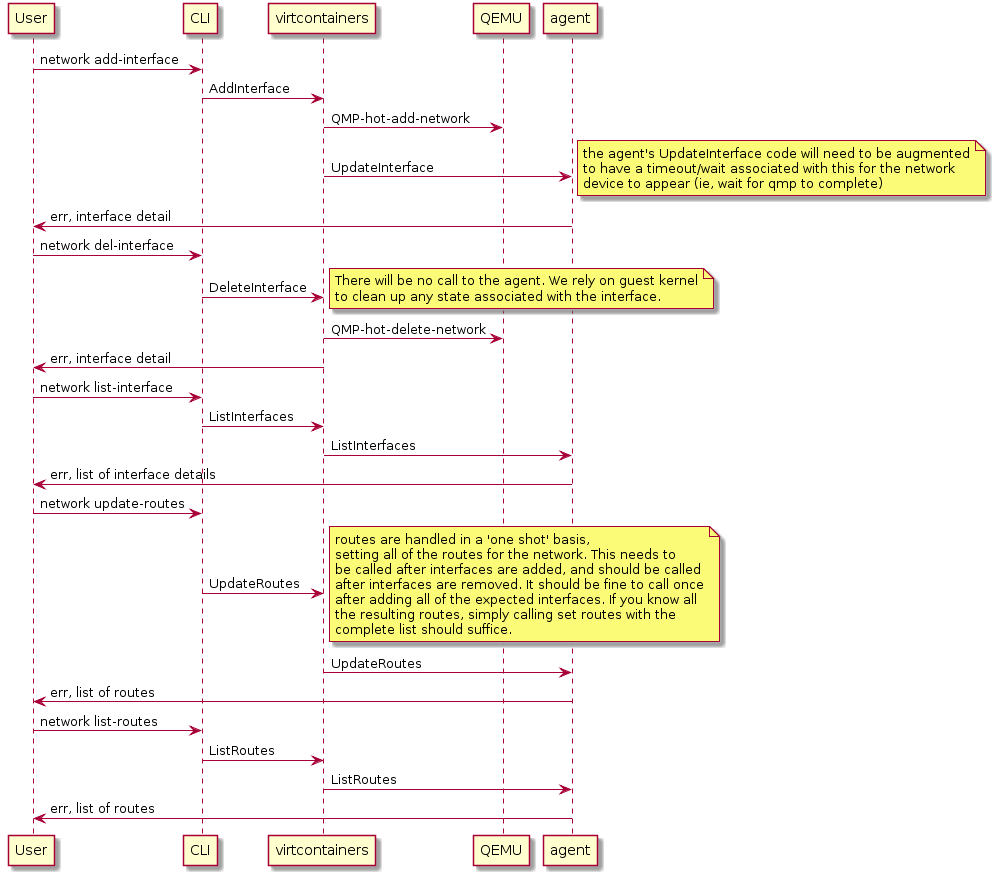This PR updates the url for the Container Network Model in the network document. Fixes #6563 Signed-off-by: Gabriela Cervantes <gabriela.cervantes.tellez@intel.com>
2.6 KiB
Networking
Containers typically live in their own, possibly shared, networking namespace. At some point in a container lifecycle, container engines will set up that namespace to add the container to a network which is isolated from the host network.
In order to setup the network for a container, container engines call into a
networking plugin. The network plugin will usually create a virtual
ethernet (veth) pair adding one end of the veth pair into the container
networking namespace, while the other end of the veth pair is added to the
host networking namespace.
This is a very namespace-centric approach as many hypervisors or VM
Managers (VMMs) such as virt-manager cannot handle veth
interfaces. Typically, TAP
interfaces are created for VM connectivity.
To overcome incompatibility between typical container engines expectations
and virtual machines, Kata Containers networking transparently connects veth
interfaces with TAP ones using Traffic Control:
With a TC filter rules in place, a redirection is created between the container network
and the virtual machine. As an example, the network plugin may place a device,
eth0, in the container's network namespace, which is one end of a VETH device.
Kata Containers will create a tap device for the VM, tap0_kata,
and setup a TC redirection filter to redirect traffic from eth0's ingress to tap0_kata's egress,
and a second TC filter to redirect traffic from tap0_kata's ingress to eth0's egress.
Kata Containers maintains support for MACVTAP, which was an earlier implementation used in Kata.
With this method, Kata created a MACVTAP device to connect directly to the eth0 device.
TC-filter is the default because it allows for simpler configuration, better CNI plugin
compatibility, and performance on par with MACVTAP.
Kata Containers has deprecated support for bridge due to lacking performance relative to TC-filter and MACVTAP.
Kata Containers supports both CNM and CNI for networking management.
Network Hotplug
Kata Containers has developed a set of network sub-commands and APIs to add, list and remove a guest network endpoint and to manipulate the guest route table.
The following diagram illustrates the Kata Containers network hotplug workflow.

